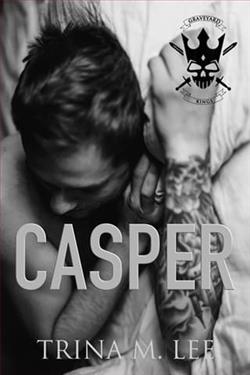Page 1 of Lady Controversial
Chapter One
Finchdean, Southern England: October 1816
Isolda Crawley paused midway through chopping yet another stack of logs. Her entire body ached from the unaccustomed activity and she straightened up with a cry of pain, massaging the small of her back with one gloved hand and wiping perspiration from her brow with the other. She wondered briefly how it was possible to feel so warm when the temperature had yet to rise above freezing. She glanced at her pile of logs and winced when her muscles protested at being abused, thus answering her own question.
‘I swear I shall find the money from somewhere and employ a gardener by the time the spring comes around,’ she told the little dog who sat beside her, watching her from beneath a shaggy fringe with his head cocked to one side. ‘Not that I anticipate still being here by then. Once Jane has married I will be free to do as I please—and there’s no need to look so sceptical, Brutus,’ she added, shaking a finger at the terrier and smiling as she always did when she used the name that her cook had landed the poor creature with.
It was her own fault. She’d been the one who’d accused him of being a little brute when he’d snuck into the scullery and helped himself to a sausage, in all fairness. Cook had simply adapted the insult when the dog went into his innocent head-cocking routine. A less likely looking brute it was difficult for Isolda to imagine, and the name had stuck.
The stray didn’t have a vicious bone in his body as far as Isolda had been able to ascertain in the short space of time since she’d been adopted by the mutt. He did however possess a desperate desire to be loved—and fed. Since Isolda had plenty of love to spare and Mrs Compton found an endless supply of scraps for the dog to wolf down, the arrangement worked well. Isolda enjoyed having at least one creature beneath her care who did not constantly harp and complain. If her sister would take a leaf out of the dog’s book, Isolda’s life would be considerably easier.
With a sigh, Isolda picked up her discarded axe and continued with her labours, getting an odd sense of satisfaction from splitting the logs with just one blow…most of the time. There was, she decided, something to be said for a job well done, no matter how menial that job might be.
She couldn’t altogether blame Brutus for doubting her determination to employ a gardener, she supposed, returning her oscillating thoughts to her earlier resolve. One would become necessary in the spring, there was no denying that, but there were a dozen more pressing causes that urgently required an infusion of her limited funds—most notably Jane’s wardrobe, Isolda conceded. She tried not to frown when she thought of the exorbitant cost that she had already incurred fitting her sister out for a season. Even on a shoestring and using a local modiste rather than the fashionable London designer whose premises Jane preferred to frequent, the number of garments deemed necessary was extravagant at best, and the cost of making them was eye-watering.
Isolda harboured grave doubts about Jane being presented at all, given their circumstances, but she had been railroaded into agreeing. In retrospect, she imagined that her aunt and sister had collaborated on the matter before involving her, being aware that she would object, and not just on the grounds of the cost. Isolda had been outmanoeuvred; it was now afait accompliand had become the sole subject of Jane’s conversation.
Isolda herself had not harboured similar aspirations, in fact the mere thought of the cattle market that represented thetonin full swing filled her with a combined sense of fear and disgust. Her aunt had supported her stubborn determination not to put herself forward, unnecessarily pointing out that her father had recently died by his own hand and that Isolda’s presence within the ranks of society’s elite would therefore be considered distasteful.
Isolda sometimes wondered how different things would have been had their aunt been forced to sponsor a niece whom, unlike Jane, she actively disliked. Papa’s timing had been most convenient, at least insofar as Lady Bellingham’s interests were concerned.
In Jane she was assured of a kindred spirit, and the difference in manner by which Lady Bellingham treated her two nieces—her only relatives—could not be more marked. As the beauty of the family and the daughter of a viscount, albeit a disgraced one, Jane had every right to her share of society. It was all well and good for their aunt to remind Isolda of the fact and to generously offer to sponsor Jane, but that generosity did not extend to covering very much of the cost of her wardrobe. Lady Bellingham was well aware of her nieces’ impecunious state, but although exceedingly wealthy herself she did not offer them financial support and pretended that the situation didn’t exist.
Lady Bellingham never referred to her brother-in-law’s spectacular fall from grace, a fall that had resulted in his putting a bullet through his own head and leaving his two daughters to fend for themselves. It was a coward’s way out, Isolda thought, bringing the axe down with renewed vigour. Papa had been man enough to gamble his estate away but not strong enough to live with the disgrace that came with it. The relatively small cottage in Finchdean—which they now called home, much to Jane’s chagrin—was tucked away in the delightful Hampshire countryside and had saved them from the poor house.
It was such an insignificant dwelling, with only just enough space for Isolda, Jane, Brutus and their two remaining loyal servants. Gladys was an ageing maid of all work who also acted as lady’s maid, in Jane’s case at least. Isolda seldom wore gowns and had no time to waste on her appearance. Jane, on the other hand, was seldom far from a looking glass. Mrs Compton, cook to the Crawley family for as long as Isolda could recall and surrogate mother to the girls, made up their motley household.
Isolda muttered an oath when the axe slipped through her fingers and clattered to the ground. She leaned forward onto the block to save herself from taking a tumble. Her hand caught a rough edge and a splinter slid through the worn leather of her glove and into the flesh of her finger.
‘Ouch!’ She removed her glove, wincing as she tugged the splinter out and then sucked her finger to stem the bleeding. ‘Come along, Brutus,’ she said. ‘Enough is enough. I am more than ready for some breakfast and I dare say that you are too.’
Brutus wagged his stumpy tail and scampered after Isolda when she turned in the direction of the cottage. She let herself in through the kitchen door, where her nostrils were assailed with the heavenly smell of frying bacon.
‘Ah, just in time, love,’ Mrs Compton said, turning away from the range with a smile. Isolda had never known the woman not to have a smile on her plump face and found herself responding in like manner. ‘Gladys tried to wake her ladyship, but she threw a pillow at her and told her to go away.’
‘In that case she will just have to go without breakfast,’ Isolda said, washing her hands and drying them on the towel that Mrs Compton passed to her. ‘I will not have you saddled with extra work simply because she is too lazy to adhere to mealtimes.’
‘I wonder how you two can be so different,’ Mrs Compton said, not for the first time, as she ladled a generous serving of bacon and coddled eggs onto a plate and placed it in front of Isolda, who had seated herself at the kitchen table.
‘Jane is beautiful, and she is convinced she will save us all by marrying well, which entitles her to be mollycoddled, at least in her own mind. I, on the other hand, am well beyond marriageable age.’
‘Stuff and nonsense!’ Mrs Compton plonked herself down at the table and made inroads into her own breakfast. ‘You are just as pretty as her ladyship, albeit in a different way.’
‘Very different,’ Isolda agreed, rolling her eyes as she thought about her wayward dark hair that was almost impossible to tame, her nose that she considered too straight, her mouth that was too full, and as for her height…well, she was far too tall for a lady, which often made gentlemen feel threatened, or so she had been told. Her grey-green eyes were arguably her best feature, she thought dispassionately. Large and expressive, they saved her face from being completely plain and managed to convey her feelings, often without the need for words.
Jane was her polar opposite in all respects. Petite, blonde and blue-eyed, with a face that could make an angel weep. It was a very great pity, Isolda often thought but did not say, that her disposition was not as sweet as her appearance. There again, Jane hid her temper well and it was only those close to her who tended to be on the receiving end of her fits of pique—all except Isolda, who wasn’t prepared to put up with it. Like all bullies, Jane knew when she had met her match and didn’t cross swords with Isolda unless she was assured of support from their aunt, who was never slow to level oblique criticisms in Isolda’s direction.
‘She’s smelled the bacon and wants her breakfast served in bed,’ Gladys said, coming into the kitchen.
‘Don’t take it to her,’ Isolda replied calmly. ‘She knows the rules. If she wants to eat then she must lower herself to set foot in this kitchen.’
Mrs Compton nodded with satisfaction as Gladys sat down to her own breakfast.
‘Why are you all ignoring me?’ Jane flounced into the kitchen a short time later, wearing a robe and with her hair hanging loose round her shoulders.
‘Stop it, Jane,’ Isolda said calmly. ‘We are not here to wait on you, any of us.’
‘Your sister has already been outside for an hour, chopping logs, if you please,’ Mrs Compton added, plonking her fat arms on her hips and glowering at Jane.















